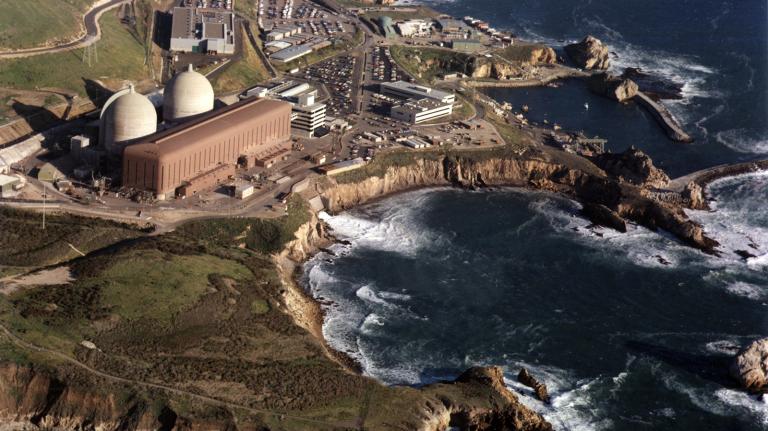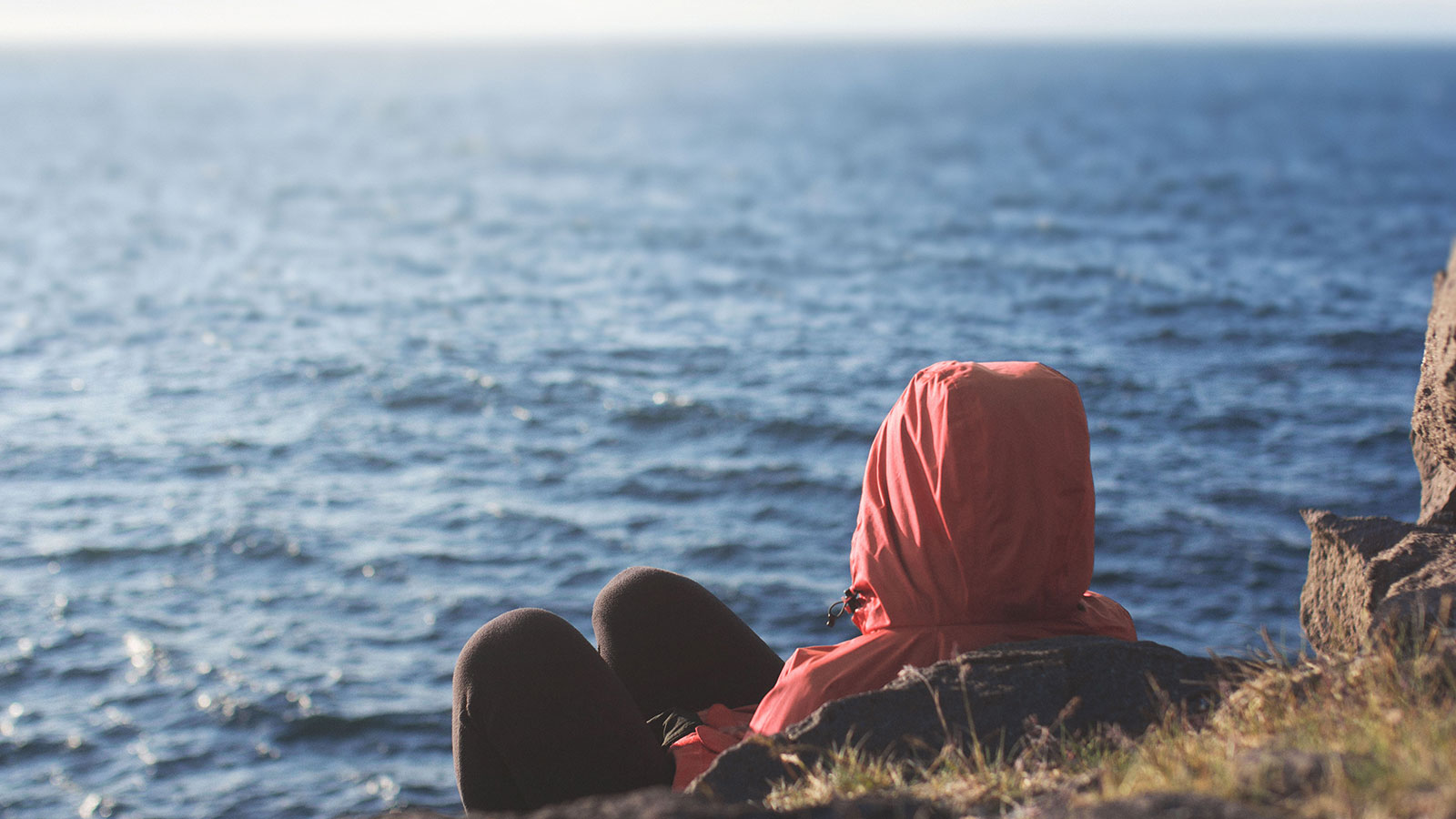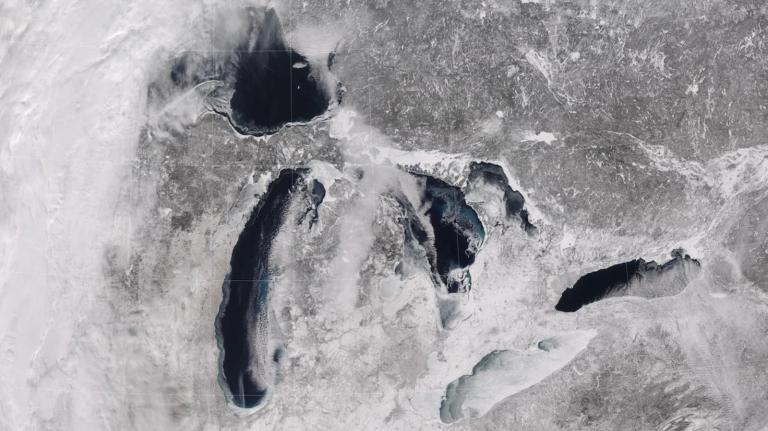The phrase “point of no return” may sound hyperbolic. But one month after the IPCC’s blockbuster report awakened the world to the urgency of climate change, the mood among top climate scientists has become increasingly restless.
I spoke with more than a dozen scientists about how their lives have changed since the release of the report in October. That report, assembled with input from thousands of scientists and signed off by representatives of every nation on Earth, reached a stark conclusion: We have to cut emissions in half by 2030 or risk a Mad Max-esque planet.
Their responses reflect the same internal tensions many of us have felt: relief that the true stakes of climate change are finally out there, grief and fear over our lack of action, impatience with leaders who continue to shirk their responsibilities, and excitement to get to work on a problem that affects us all.
Take Georgia Tech’s Kim Cobb, a climate scientist who studies corals near small island states. The IPCC report found that without a radical shift, those nations could disappear beneath the waves in our lifetimes. Cobb sees the findings putting into stark terms how much we need to step up: “Isn’t it so wonderful that science isn’t giving us a pass?”
Earlier this year, she pledged to sharply reduce her air travel. Cobb bikes to work in all kinds of weather, and recently trekked to Atlanta City Hall to advocate for bike and pedestrian-friendly infrastructure. Before the midterm elections, she spent a weekend campaigning for environmentally friendly politicians. Cobb is a testament to what she calls an “all-of-the-above” approach to bring about radical change.
Climate scientists like Cobb live in a world that’s still caught between where we are and where we need to be. Watching how they’re responding to the IPCC report is a good barometer for how thinking, feeling people with full knowledge of our society’s existential problem are coping with being alive at a moment when we’ve got 12 years to remake everything.
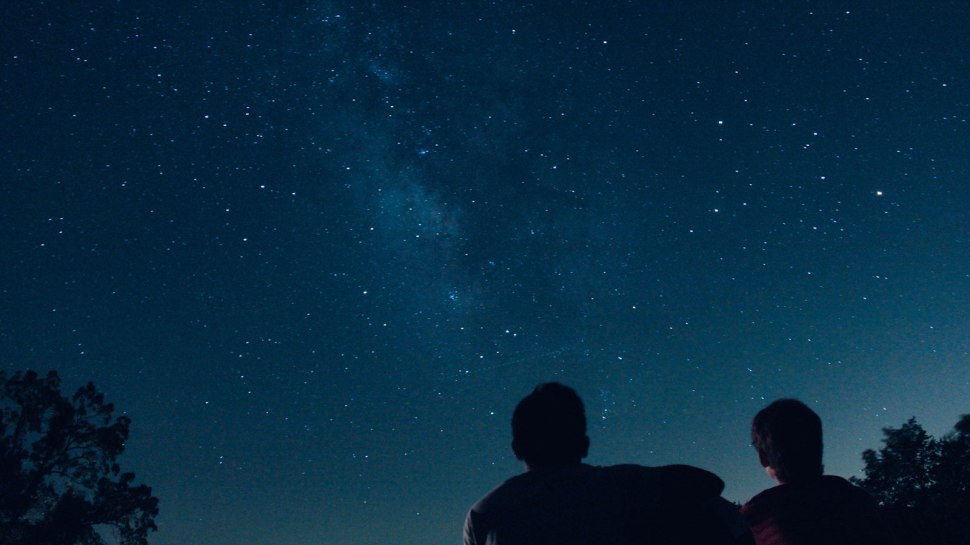
Ryan Jacobson
The scientists I talked to are doing more biking, meditating, wine drinking, and worrying about their children’s futures. They’ve tuned out the news, they’ve tweeted, and they’ve campaigned. They’ve purchased electric cars and talked from the heart about the stakes our civilization finds itself in. In short, they’re handling this new reality a lot like the rest of us.
Here are some of the (lightly edited and condensed) email responses I got:
Diana Liverman, University of Arizona (and a co-author of the IPCC report)
I’m still in full IPCC outreach mode, giving talks locally and in Europe as well. Things won’t wind down until Thanksgiving. I am refining my message and getting better at talking about the report and making its findings relevant for where I live.
Teaching my large undergrad class (160 students) is helpful at keeping things positive as they seem engaged and interested. I feel the need to give them hope.
Kate Marvel, NASA Goddard Institute for Space Studies
I don’t think we should give in to despair. There’s no scientific support for the notion that we’re inevitably doomed and should just give up. There’s a lot of bad news, but look at the good news, too: new congresspeople who take climate change seriously, a very engaged and well-informed youth, new ways to talk about climate that link it to other issues people care deeply about.
I’m not saying this to minimize the terrifying reality. I miss California like I miss a person, and it’s devastating to see my beloved home burning.
Andrea Dutton, University of Florida
It is easier to ignore the problem than to take on the emotional burden of accepting something that seems quite scary at times.
The fundamental message has remained the same. The reason why it sounded so much more urgent this time is three-fold: (1) We are now several years further along, and each year makes a significant difference in calculating how much we would need to decrease our emissions to reach any target; (2) the 1.5 C target is lower than 2 C, so obviously trying to reach it means even more rapid and deep cuts to our emissions; and (3) the backwards progress on policies to address this in the U.S. makes the outlook even worse now.
So, what has changed for me? If anything I am working even more frantically than before. I devote even more time to public engagement on this issue.
I hope that we (meaning both scientists and journalists) can encourage others not to get stuck in despair, but to use their concern over climate change as fuel to take us to the next step on this journey to adapt, mitigate, and create a more sustainable and resilient society.
Kerry Emanuel, Massachusetts Institute of Technology
When things started going downhill a few years ago, I started planning for a temporary escape from the U.S. and am now happily in Paris for the fall. One cannot, of course, escape from all the bad news so easily, and it is hard to develop a positive outlook when almost nothing is actually happening to combat all the problems we face, including especially climate change.
Devaraju Narayanappa, Université de Versailles Saint-Quentin (France)
I certainly think the report is shouting out loud across the Earth; more and more people are getting alerted. I hope the transformations, discussed in the IPCC report, might at least start to happen in some part of the world. Personally I’m trying my best to be eco-friendly and balancing the time for research, exercise, and for the family and friends.
Sarah Perkins-Kirkpatrick, University of New South Wales (Australia)
The stakes are very different for me. I’m expecting my second daughter in three short months and the latest report is sobering about the future my children will have. I find myself constantly thinking about what the planet will look like in 50 or 100 years’ time when we haven’t curbed our emissions, at least enough to limit global warming to 1.5-2 C. And I don’t like what I see. However, I cannot (and will not) give up hope that changes will be made, at least in my lifetime, and if not that of my children. I’d be drinking (more) wine too if I could, but that’s not advised at 28 weeks pregnant ;)
Jeremy Shakun, Boston College
Everything climate is a long-term story, so I tend/try not to get too worked up/down by any particular moment. I increasingly think the public isn’t going to push for much action, at least on the scale needed, until they see a bunch more climate disruption/impacts. It’s just too theoretical otherwise and can’t compete with other issues.
I haven’t had much hope for 1.5 or 2 C for a while. I tend to think of this in 3 vs 6 C terms. So, bad news in some ways is good news, as it perhaps helps move public perception forward and increase chances of less than 3 C. I’ve been struck by how many people in my everyday life have been commenting this year on how bizarre the weather is. They don’t necessarily connect it to climate change yet, but I think it’s an important step.
Adam Sobel, Columbia University
At this point, I am most terrified by the failure of the United States’ system of democratic government. Of course that is not an entirely separate issue from global warming and the various other environmental catastrophes.
Since the 2016 election, I have had to limit my intake of news to a lower level than before.
Deke Arndt, NOAA’s National Centers for Environmental Information
I’m trying to talk with as many people as I can about climate. The solutions lay in the people who haven’t yet acted.
Abigail Swann, University of Washington
The Brazilian election has left a much more unexpected pit in my stomach because it wasn’t really on my radar until this fall. I’d also add to your list of difficult-to-stomach news the ongoing revelations about various academic and STEM #MeToo incidents, and some extremely disappointing responses to them.
The everyday of being a professor is hard, but also involves a lot of busy tasks with deadlines this time of year, so some of my coping is just to keep making sure that I don’t let other people down. I also have a toddler. The mundane sometimes feels like a respite, but with both students and family, it also feels really important, and therefore restorative (at least most of the time when dinner doesn’t get thrown all over the room).
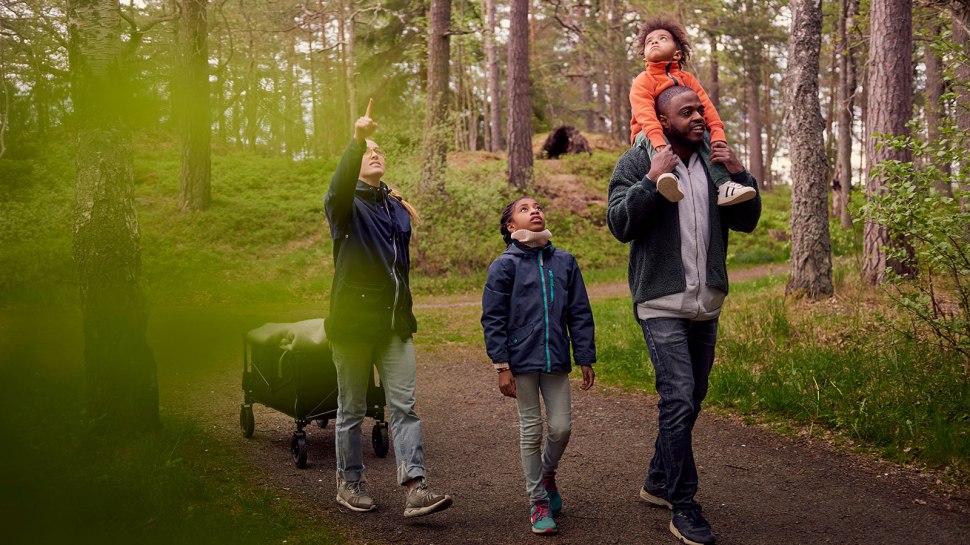
Maskot / Getty Images
Valerie Trouet, University of Arizona
I admit that in the context of what we know, at times I find it hard to keep motivated to do my job. I focus more and more on aspects that seem more achievable and that I feel have a bigger chance of getting solved, such as diversity and equality in STEM fields and in academia.
I make more time to meditate, and make sure that I exercise and spend time with the people that I love. I also find that trying to find ways to further reduce my footprint, even in little ways, helps to give me a feeling of being in control.
Sara Vicca, University of Antwerp (Belgium)
Moments like these, when we are strongly reminded that a turbulent future may be ahead of us, do upset me and make me angry. When I put my kids in bed at night, I often catch myself thinking: “Oh dear, what will their life be like when they are adults?” (They are 6 and 9 now.)
On the other hand, news like this also stimulates me to contribute (more) to the solutions where I can. I think it’s really important not to lose hope and to keep on doing all we can to move to a sustainable future in a still friendly climate.
Mark Eakin, NOAA’s Coral Reef Watch
The years 2014-2017 have all been among the warmest years on record, and along with the high temperatures came the longest, most widespread global coral bleaching event on record. At NOAA’s Coral Reef Watch, we’re right at the center of these events and received frequent reports from scientists and resource managers all over the world who reported coral bleaching as it was happening. There were many days I’d just walk away from the computer and look out the window when an especially devastating report of reef damage came in. I think it led to more self-medication as the bad news would literally drive me to drink (fortunately, not too much).
Terry Hughes, James Cook University (Australia)
The IPCC report singled out coral reefs as a vulnerable ecosystem. My worst fear is the growing likelihood of another extreme summer in Australia early next year that could damage the Reef again. Yet, Australian governments still promote the expansion of coal and gas. My personal response – publish our data as quickly as we can, to inform the voting public.
Eric Rignot, University of California-Irvine
Sea-level rise and flooding is one thing, people get wet, immigrate, and create huge problems. Loss of biodiversity means the human species as a whole is threatened to disappear. No joke. This is not discussed enough in the media. My uttermost concern goes to biodiversity more than ice sheets.
Now a lot of countries are pointing the finger at the U.S. but we are doing more in California than in any other country that signed the Paris agreement. I see an increasing concern from the public to do the right thing, so I am more hopeful now than 10 years ago when only visionary people cared and the rest did not.
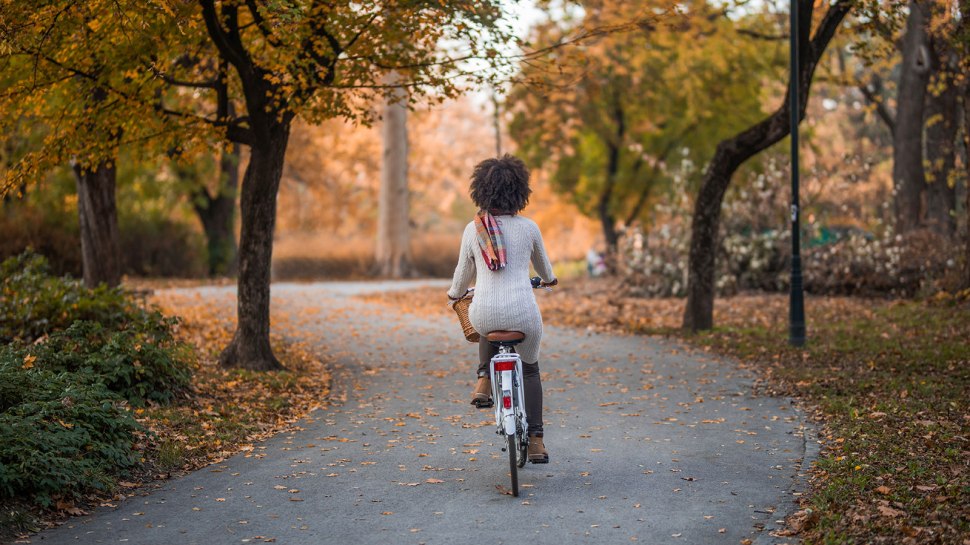
skynesher / Getty Images
Richard Alley, Pennsylvania State University
Next week, if the rains hold off, I should hit 2,500 miles for the year on my bicycle. A lot of those miles have been down the Spring Creek Canyon, watching the eagles and osprey and mink as the seasons turn, enjoying the beauty that still surrounds us.
In my public presentations, I now generally start with cellphones. Many of our fellow citizens do accuse scientists of not knowing what we’re doing. But, they do so by using cellphones, which are just a little sand, a little oil, and the right rocks, plus science and engineering, design and marketing. The cellphones rely on relativity and quantum mechanics. I think most of our fellow citizens really do know that they couldn’t build a cellphone from the sand, oil, and rocks, and that scientists really do have useful insights, including discovering medicines and medical procedures and devices that save lives and ease suffering. And that knowledge really does mean that there are ways back to using our knowledge more broadly to help us.
If we use our knowledge on energy and environment more efficiently, we will get a larger economy with more jobs, improved health, and greater national security in a cleaner environment more consistent with the Golden Rule.
Not a bad goal, is it?
